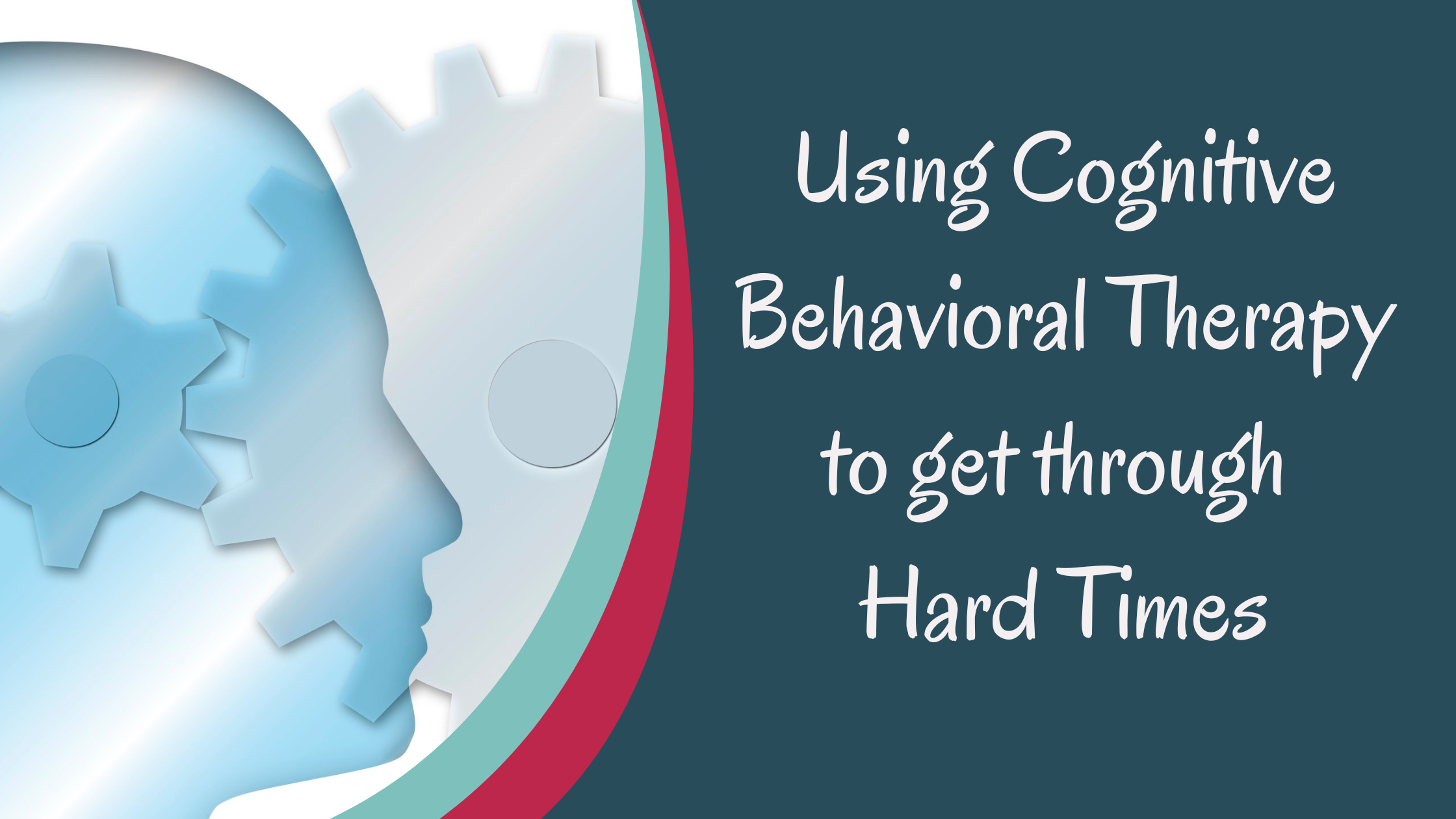Hard times are an inevitable part of life. Whether you are dealing with a loss, going through a major life change, or experiencing mental health challenges, it can be tough to navigate these difficult times. However, with the right tools and strategies, you can learn to cope with these challenges in a healthy and productive way. One such tool is cognitive-behavioral therapy (CBT).
- CBT is a type of talk therapy that focuses on changing negative patterns of thought and behavior. It is a problem-solving approach that helps individuals identify and challenge unhelpful thoughts and beliefs, and replace them with more positive and constructive ones. Here are some ways that CBT can help you get through hard times:
- Changing negative thought patterns: Hard times can often trigger negative thoughts and beliefs about ourselves and the world around us. These thoughts can spiral into anxiety and depression, making it even harder to cope. CBT helps individuals identify these negative thoughts and replace them with more balanced and positive ones.
- Coping with difficult emotions: When going through hard times, it’s common to experience intense emotions such as sadness, anger, or anxiety. CBT helps individuals learn healthy coping strategies for dealing with these emotions, such as mindfulness, relaxation techniques, and problem-solving skills.
- Building resilience: CBT can help individuals develop a sense of resilience, or the ability to bounce back from adversity. By learning to challenge negative thoughts and build healthy coping strategies, individuals can develop a sense of confidence in their ability to handle difficult situations.
- Improving relationships: Hard times can put a strain on relationships, but CBT can help individuals learn healthy communication and problem-solving skills that can improve relationships and make them more resilient.
- Building self-esteem: Hard times can take a toll on self-esteem, but CBT can help individuals identify and challenge negative self-talk and build a more positive self-image.
If you are going through a hard time, remember that you don’t have to go through it alone. CBT can be a helpful tool in coping with difficult emotions, building resilience, and improving relationships. Consider talking to a mental health professional who specializes in CBT to learn more about how it can help you navigate the challenges you are facing.
Cognitive-behavioral therapy (CBT) can be a valuable tool for business professionals in a variety of ways. Here are some ways that CBT can help in business:
- Managing stress: Stress is a common issue in the business world, and it can have negative impacts on both mental and physical health. CBT can help individuals identify and manage stress triggers, develop healthy coping strategies, and improve overall stress resilience.
- Building resilience: Business can be unpredictable, and setbacks and failures can take a toll on mental health and motivation. CBT can help individuals develop resilience, or the ability to bounce back from adversity. This can help business professionals stay focused, motivated, and productive even in the face of challenges.
- Improving communication skills: Effective communication is key to success in the business world, and CBT can help individuals improve their communication skills by identifying and challenging negative thought patterns, building self-confidence, and developing healthy communication habits.
- Enhancing problem-solving skills: CBT can help individuals develop problem-solving skills by teaching them to identify and challenge negative thought patterns that may be blocking effective problem-solving. By developing a more balanced and constructive mindset, individuals can approach problems with greater creativity and flexibility.
- Building confidence and self-esteem: Confidence and self-esteem are important for success in business, and CBT can help individuals build these qualities by challenging negative self-talk, identifying strengths and accomplishments, and developing a more positive self-image.
Overall, CBT can be a valuable tool for business professionals who want to improve their mental health and well-being, as well as their performance in the workplace. By learning to manage stress, build resilience, improve communication and problem-solving skills, and build confidence and self-esteem, individuals can develop a more positive and productive mindset that can help them succeed in business and in life.
If you’re interested in learning more about CBT or accessing CBT resources online, here are some options:
- Online CBT courses: There are many online courses that offer CBT training and resources. Some examples include the Beck Institute, which offers online courses in CBT for depression, anxiety, and other mental health issues, and the Center for Clinical Interventions, which offers free online CBT resources and worksheets for a range of mental health concerns.
- Therapy apps: There are a variety of therapy apps available that incorporate CBT techniques. Some examples include Talkspace, BetterHelp, and Moodfit.
- Self-help books: There are many self-help books available that incorporate CBT principles. Some examples include “Feeling Good” by David Burns, “Mind Over Mood” by Dennis Greenberger and Christine Padesky, and “The Anxiety and Worry Workbook” by David Clark and Aaron Beck.
- Finding a CBT therapist: If you’re interested in receiving CBT therapy, you can search for a therapist who specializes in CBT on websites such as Psychology Today or the Association for Behavioral and Cognitive Therapies.
It’s important to remember that while online resources can be helpful, they are not a substitute for professional mental health treatment. If you are struggling with mental health issues, it’s important to seek help from a licensed mental health professional who can provide individualized treatment and support.


No responses yet